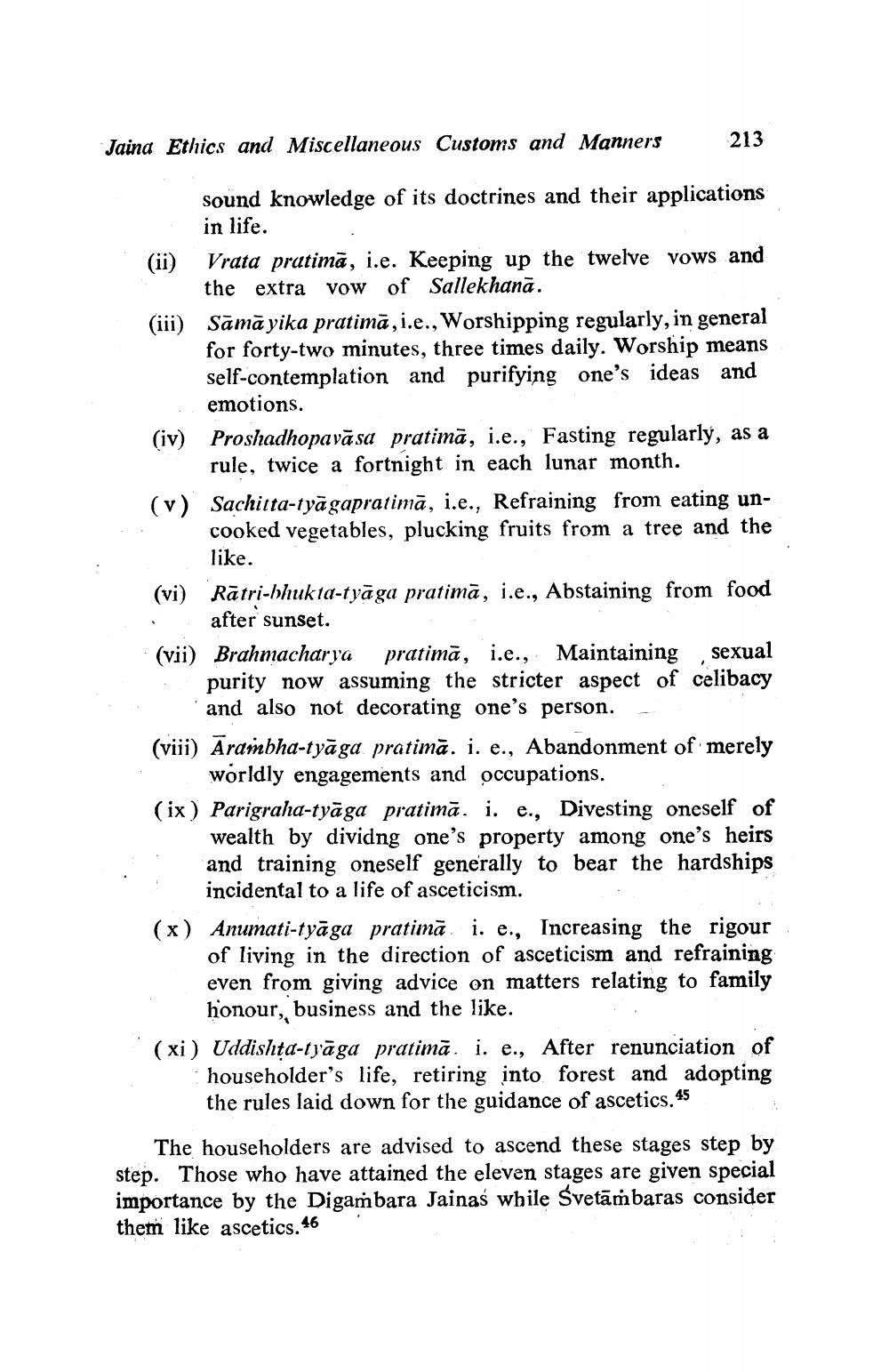________________
Jaina Ethics and Miscellaneous Customs and Manners
213
sound knowledge of its doctrines and their applications in life. Vrata pratimā, i.e. Keeping up the twelve vows and
the extra vow of Sallekhanā. (iii) Sāmā yika pratimā, i.e., Worshipping regularly, in general
for forty-two minutes, three times daily. Worship means self-contemplation and purifying one's ideas and
emotions. (iv) Proshadhopavāsa pratimā, i.e., Fasting regularly, as a
rule, twice a fortnight in each lunar month. Sachitta-tyāgapratimā, i.e., Refraining from eating uncooked vegetables, plucking fruits from a tree and the
like. (vi) Rātri-bhukta-tyāga pratimā, i.e., Abstaining from food
after sunset. (vii) Brahmacharya pratimā, i.e., Maintaining sexual
purity now assuming the stricter aspect of celibacy
and also not decorating one's person. (viii) Ārambha-tyāga pratimă. i. e., Abandonment of merely
worldly engagements and occupations. (ix) Parigraha-tyāga pratimā. i. e., Divesting oneself of
wealth by dividng one's property among one's heirs and training oneself generally to bear the hardships
incidental to a life of asceticism. (x) Anumati-tyāga pratimā. i. e., Increasing the rigour
of living in the direction of asceticism and refraining even from giving advice on matters relating to family
honour, business and the like. (xi) Uddishta-tyāga pratimā. i. e., After renunciation of
householder's life, retiring into forest and adopting the rules laid down for the guidance of ascetics.45
The householders are advised to ascend these stages step by step. Those who have attained the eleven stages are given special importance by the Digambara Jainaś while Svetāmbaras consider them like ascetics. 46




